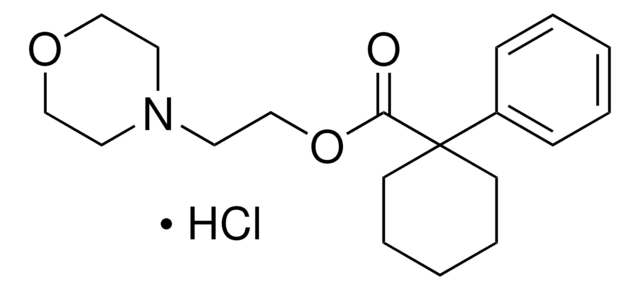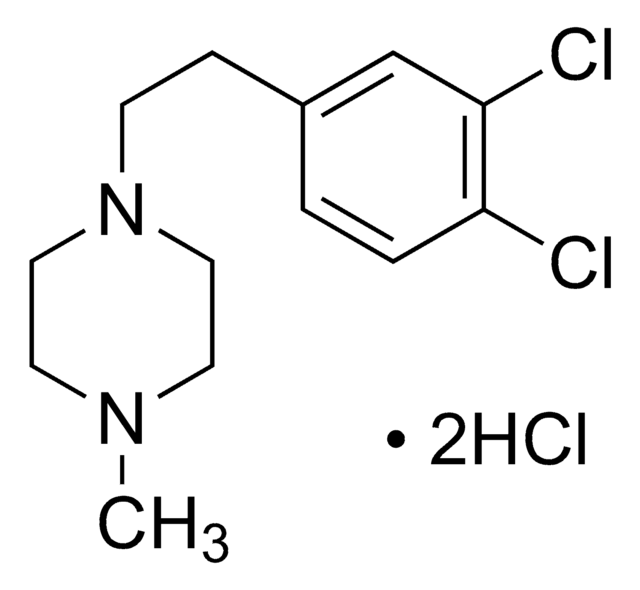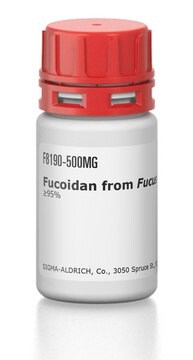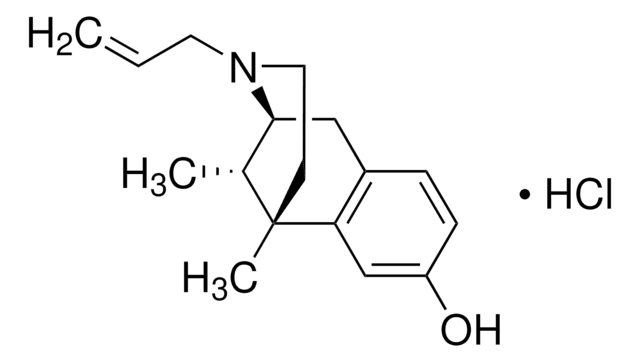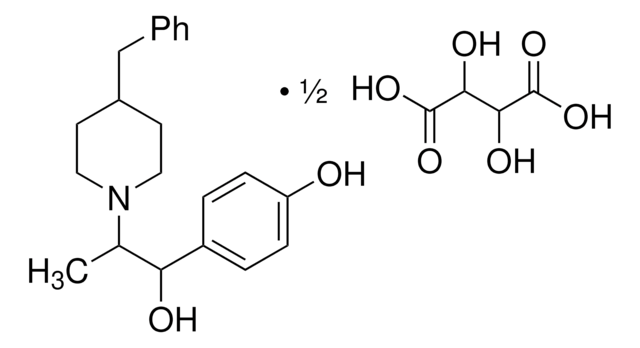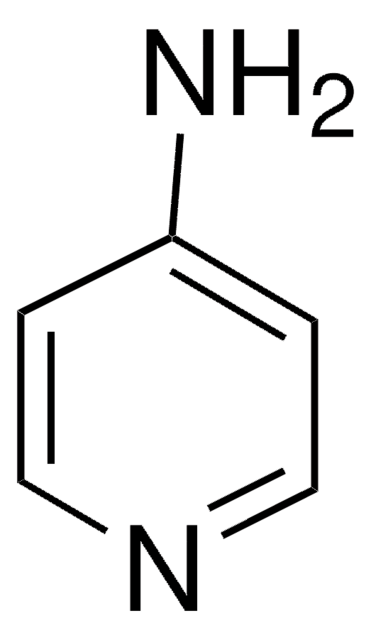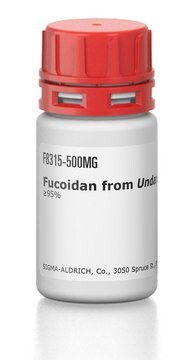B8562
BD 1047 dihydrobromide
≥95% (HPLC)
Synonym(s):
BD 1047 dihydrobromide
Sign Into View Organizational & Contract Pricing
All Photos(1)
About This Item
Empirical Formula (Hill Notation):
C13H20Cl2N2 · 2 HBr
CAS Number:
Molecular Weight:
437.04
MDL number:
UNSPSC Code:
12352200
PubChem Substance ID:
NACRES:
NA.77
Recommended Products
Quality Level
Assay
≥95% (HPLC)
form
powder
storage condition
desiccated
color
white
solubility
H2O: >5 mg/mL
storage temp.
2-8°C
SMILES string
Br.Br.CN(C)CCN(C)CCc1ccc(Cl)c(Cl)c1
InChI
1S/C13H20Cl2N2.2BrH/c1-16(2)8-9-17(3)7-6-11-4-5-12(14)13(15)10-11;;/h4-5,10H,6-9H2,1-3H3;2*1H
InChI key
WOALTFHGLDVJHK-UHFFFAOYSA-N
Application
BD 1047 dihydrobromide has been used as an antagonist of sigma-1 receptor in hepatocellular carcinoma cells.
BD 1047, a selective, putative σ1 receptor antagonist, is used in sigma receptor research to help differentiate and characterized the function and role of the sigma1 receptor versus other sigma receptor subtypes. BD 1047 is used to help define the role of σ1 receptors in neurological processes.
Biochem/physiol Actions
BD-1047 is a selective, putative σ receptor antagonist with antidystonic activity.
BD-1047 is a selective, putative σ receptor antagonist with antidystonic activity. BD-1047 has >50-fold selectivity at σ1 over σ2 and also >100-fold selectivity over opiate, phencyclidine, muscarinic, dopamine, α1- & α2-adrenoceptor, 5-HT1, and 5-HT2. Though s receptor antagonism is consistent with antipsychotic, especially anti-schizophrenic, activity, BD-1047 shows only modest activity in animal screens for antipsychotics.
In human immunodeficiency (HIV)-1 seropositive patients, BD 1047 along with other antioxidants may aid in reduction of cathepsin B- based neuropathology.
Signal Word
Danger
Hazard Statements
Precautionary Statements
Hazard Classifications
Eye Dam. 1 - Skin Irrit. 2 - STOT SE 3
Target Organs
Respiratory system
Storage Class Code
11 - Combustible Solids
WGK
WGK 3
Flash Point(F)
Not applicable
Flash Point(C)
Not applicable
Choose from one of the most recent versions:
Already Own This Product?
Find documentation for the products that you have recently purchased in the Document Library.
Tao Bai et al.
Journal of cellular and molecular medicine, 23(11), 7349-7359 (2019-09-12)
Sigma-1 receptor (S1R) regulates reactive oxygen species (ROS) accumulation via nuclear factor erythroid 2-related factor 2 (NRF2), which plays a vital role in ferroptosis. Sorafenib is a strong inducer of ferroptosis but not of apoptosis. However, the mechanism of sorafenib-induced
Omar Vélez López et al.
Journal of neuroimmune pharmacology : the official journal of the Society on NeuroImmune Pharmacology, 14(2), 226-240 (2018-10-12)
Pathogenesis of HIV-associated neurocognitive disorders (HAND) is mediated through the infiltration of perivascular macrophages into the brain with the secretion of viral, neurotoxic and inflammatory proteins. One of these proteins is cathepsin B (CATB), a lysosomal cysteine protease that induces
Susmita Sil et al.
Molecular neurobiology, 56(5), 3576-3590 (2018-08-29)
Cocaine, a known psychostimulant, results in oxidative stress and inflammation. Recent studies from our group have shown that cocaine induces inflammation in glial cells. Our current study was aimed at investigating whether cocaine exposure could also induce inflammation in non-glial
Our team of scientists has experience in all areas of research including Life Science, Material Science, Chemical Synthesis, Chromatography, Analytical and many others.
Contact Technical Service